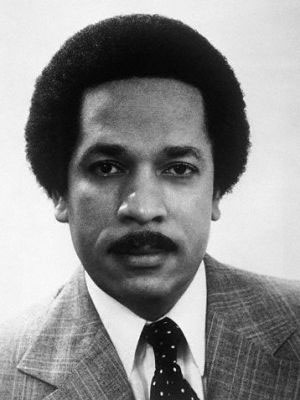December 19

1875—The man who would become recognized as the “Father of Black History,” Carter Godwin Woodson, is born on this day in New Canton, Buckingham County, Va. Woodson founded the Washington, D.C.,-based Association for the Study of Afro-American Life and History. He wrote hundreds of articles about Black history and published several books with the most widely circulated being “The Negro in Our History” and launched the information celebration now known as Black History Month. His famous warning to African-Americans about the need to know and study Black history was, “Those who have no record of what their forebears have accomplished lose the inspiration which comes from the teaching of biography and history.” Woodson died suddenly on April 3, 1950.
1891—One of the pioneers of Black Catholicism, Charles Randolph Uncles, was ordained the first African-American priest in America on this day in Baltimore, Md.

1910—Two of the nation’s leading Black newspapers were founded on this day: Pittsburgh Courier and the Norfolk Journal and Guide. The Pittsburgh Courier would become the nation’s largest circulation Black-oriented newspaper after Robert Lee Vann became editor & publisher. The Norfolk Journal and Guide evolved from a fraternal order publication known as the Lodge Journal and Guide.
1930—Perhaps the nation’s leading Black sorority, Delta Sigma Theta, is officially incorporated. The sorority was actually founded in 1913 by 22 coeds at Howard University in Washington, D.C. One of the first public acts by the group was to participate in a demonstration in March 1913 demanding that women be given the right to vote.
December 20

1860—Believing the November election of Abraham Lincoln would bring the end of slavery; on this day in 1860 South Carolina becomes the first Southern state to secede from the Union. Other states hold conventions and by the time Lincoln takes office on March 4, 1861, seven Southern states had seceded to form the Confederacy. The secessions lay the foundation for the start of the Civil War. In 1865, the victory of the North brings an end to slavery but not before over 600,000 people had been killed.
1988—Max Robinson, the first Black co-anchor of a nightly network news program (ABC’s World News Tonight), dies in Washington, D.C., of complications due to AIDS. The 49-year-old Robinson was officially thought to be straight. It was never publicly explained how he contracted the deadly disease. Robinson’s given name was Maxie Cleveland Robinson Jr.
December 21
1865—Following the example set by Mississippi, South Carolina on this day enacted a series of “Black Codes.” The codes displayed a White Southern obsession with three things after losing the Civil War. 1) They still desperately wanted to control Blacks. The primary method was forcing the now landless and money-less ex-slaves to sign “labor contracts” with White employers, which were so strict that they came close to re-instituting slavery. 2) They were obsessed with preventing sexual relations between Blacks and Whites. This took the form of banning interracial marriages and relationships. 3) They wanted to retard Black economic progress with a series of measures designed to require that Blacks work for Whites and not establish their own businesses. The codes barred Blacks from even selling farm products without the permission of a White employer. Fortunately, many of the codes were never fully enforced because Northern troops occupied the South and voided many of the “Black Codes.”

1956—The Montgomery Bus Boycott ends. For over a year Montgomery, Ala., Blacks had boycotted city buses to demand an end to segregation and demeaning treatment of African-Americans. The boycott had been sparked by the dramatic refusal of Rosa Parks to give up her seat on the bus to a White man. The boycott ended when the United States Supreme Court ruled that public transportation segregation was unconstitutional. By the time the boycott ended, Parks and boycott leader Martin Luther King Jr. were national heroes (at least among Blacks).
1988—National Black political leader Jesse Jackson begins a campaign encouraging use of the designation “African-American” instead of “Black” to denote Americans of African ancestry.
December 22
1898—Historian and author Chancellor Williams is born on this day in Bennettsville, S.C. Williams authored the book “Destruction of Black Civilization: Great Issues of Race from 4500 BC to 2000 AD.” The book is considered a must-read for any serious student of Black history. Williams died in 1992.
December 23
1815—Abolitionist Henry Highland Garnet is born in Kent County, Md. Perhaps second only to Frederick Douglass, Garnet was the leading Black abolitionist of the 1800s. He was known for his tremendous oratorical skills and being bold in expressing his opinions. After the Civil War, however, he became frustrated with the slow pace of Black progress in America and favored the establishment of an independent Black nation in Africa.

1867—Madame C.J. Walker is born Sarah Breedlove on a Delta Plantation in Louisiana. A high level of self-esteem and a near unmatchable level of energy enabled her to launch a hair care products business, which is believed to have made her the first Black millionaire in America. Her story is truly an amazing one. As an orphan at age 7, she quickly became an independent woman. She began working for another Black woman with a line of hair care products. But she soon launched her own—“Madame Walker’s Wonderful Hair Grower.” She traveled for a year and a half promoting her products throughout the South and Southwest. By 1910, she had settled in Indianapolis, Ind., where she built her factory. By 1913, she traveled through the Caribbean and Central America promoting her products. By 1916, she moved to New York in a Harlem townhouse that was as fabulous as anything on Fifth Avenue. In 1917, she was part of a delegation of prominent Blacks who visited the White House to protest against lynching. Once asked the secret to her success, she said, “I got myself a start by giving myself a start.” She died in 1919 as the wealthiest Black woman in America.
December 24
1881—The Edgefield Exodus begins. Over 5,000 Blacks, driven in part by a wave of White violence and economic exploitation, begin leaving Edgefield County, S.C., and resettle in Arkansas. The movement was also encouraged by people like Pap Singleton who believed Southern Blacks could enjoy a better life if they moved to the Midwest. It is also believed that some Whites also encouraged the exodus in a bid to reduce South Carolina’s Black population, which was a majority in the state in the 1870s and 1880s.
1881—With the Reconstruction period over and federal troops withdrawn from the former slave states, Whites began to reassert their authority with a host of segregationist and anti-Black laws. On this day, Tennessee led the way to modern segregation with a “Jim Crow” railroad car statute. Basically, “Jim Crow” meant segregation. Virtually all the other Southern states soon did the same, passing laws designed to segregate or keep Blacks and White separated. How the name “Jim Crow” came to represent segregation is unclear. It is believed to have originated from a White minstrel show performer of the 1830s named Thomas “Daddy” Rice who stole the phrase from a slave who did a song and dance using the words “Jim Crow” as a criticism of his slave master. Regardless, many of the Jim Crow laws enacted in the 1880s remained in force until the successes of the Civil Rights Movement of the 1960s.